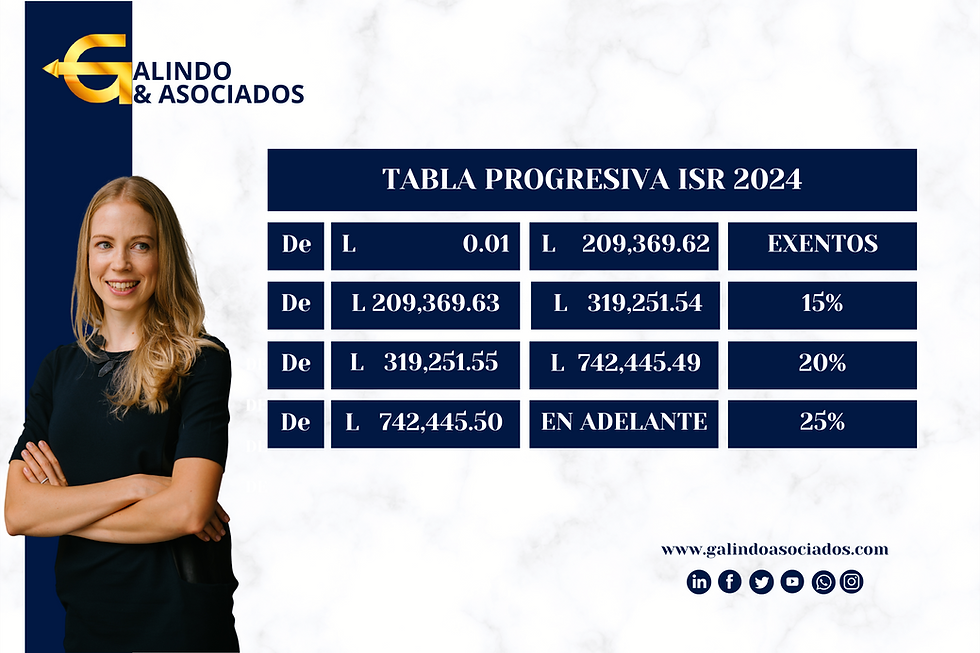Cooperatives and the Solidarity Economy: An Underexplored Opportunity for Responsible Investment
- Galindo & Asociados

- 7 jul 2025
- 3 Min. de lectura
In a context where responsible investment is gaining increasing importance, cooperatives in Honduras emerge as a solid alternative with genuine social impact. In this article, Lic. Héctor Enamorado delves into cooperative financing mechanisms and the reasons why they are worth considering.
At a time when investors are increasingly seeking to align their portfolios with sustainability and social responsibility criteria, cooperatives and the solidarity economy in Honduras stand out as an investment vehicle with tangible impact. Far from being a marginal niche, this sector mobilizes local resources, promotes financial inclusion, and fosters community development all under democratic and self-management principles.
According to the 2021 Financial Inclusion Report by the National Commission of Banks and Insurance (CNBS), Honduras hosts 89 savings and credit cooperatives supervised by CONSUCOOP and 1,044 cooperatives in other sectors (agricultural, labor, consumer, etc.)¹. These entities served 85,558 loan clients with a total of HNL 3,466.4 million in loans, with a near-parity gender breakdown: 52.6 % of loans went to men and 47.4 % to women¹. Moreover, the net loan portfolio reached HNL 33,018.5 million, growing at an annual rate of 1.6 %¹.
Beyond the financial figures, Honduran cooperatives play a fundamental role in the solidarity economy. By channeling local savings—which accounted for 73.9 % of total deposits in 2021—into productive and social projects, these organizations drive job creation in rural and peri-urban areas where commercial banks have limited reach¹. In many communities, the only accessible credit option at reasonable rates comes precisely from these cooperatives.
Responsible investment in this context can take several forms. First, through green finance, a growing field: studies from the National Autonomous University of Honduras show that some cooperatives already grant microloans targeted at solar energy projects, sustainable crop management, and water treatment². Second, via impact investment funds that allocate capital to cooperatives with robust governance and transparency mechanisms for example, those that publish external audits and maintain controlled delinquency rates³.
However, this appeal comes with regulatory and management challenges. The Cooperatives Law (Decree 65-87) and its regulations have established supervisory foundations, but scholars at the Technological University of Honduras warn of the need to strengthen risk assessment mechanisms and financial management training⁴. Likewise, promoting transparency through periodic reports, open assemblies, and good-practice certifications is key to attracting institutional investors who typically require standards equivalent to those of traditional banking.
For those seeking diversification with a social and environmental component, Honduran cooperatives offer a dual dividend: stable financial returns and improved living conditions for thousands of families. Backed by official statistics over HNL 30 billion in loan portfolio, nearly 2 % annual growth, and a consolidated presence across the country this sector represents an underexplored opportunity with significant scaling potential.
For more information on how this innovation may affect your operation or investment in Honduras, the Galindo & Asociados team the Galindo & Asociados team is at your disposal.

Hector Enamorado
Socio de Consultoría
Legal Notice: The information contained in this news blog is provided solely for informational purposes and should not be construed as legal advice on any of the topics covered. We cannot guarantee or anticipate whether the interpretations contained in this news blog may or may not be accepted by the relevant authorities. You should not act or refrain from acting based on any content included in this news blog without seeking legal or professional advice. The content of this news blog is general information and may not apply to your particular situation. We disclaim all responsibility for any actions you take or refrain from taking based on any content in this communication.










Comentarios